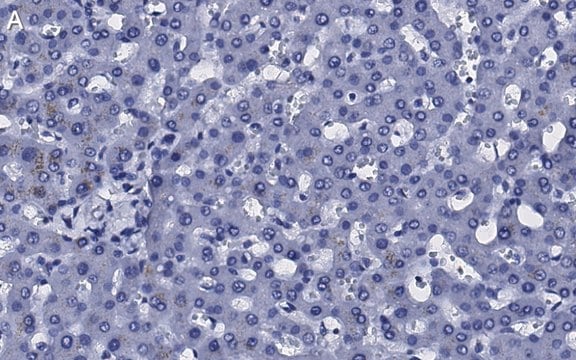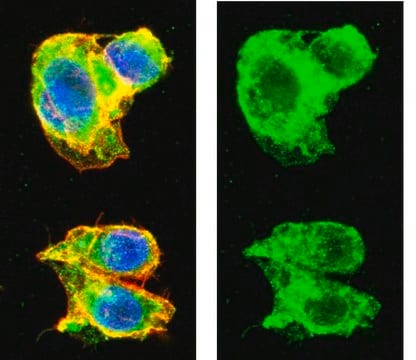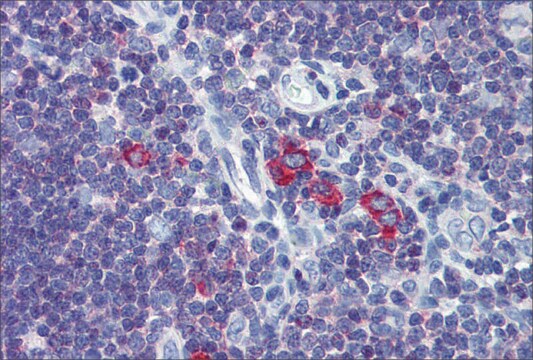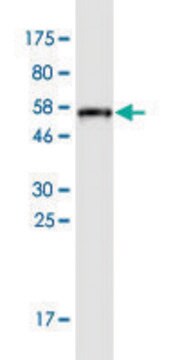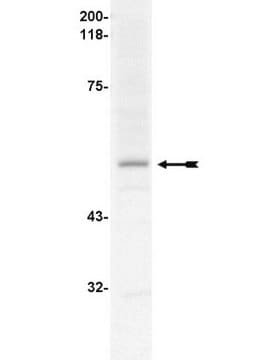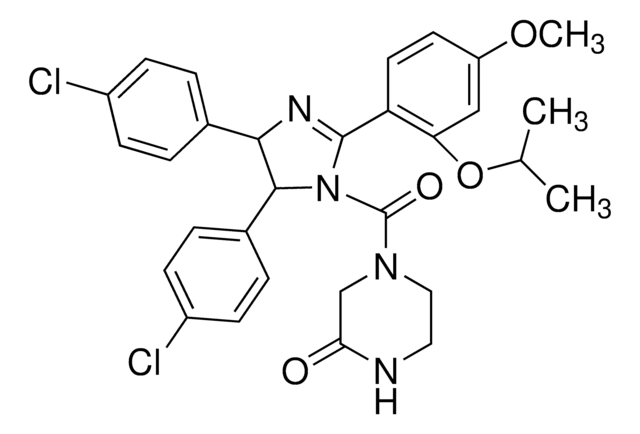GW20009F
Anti-Transferrin antibody produced in chicken
affinity isolated antibody, buffered aqueous solution
Synonym(s):
Anti-Serotransferrin, Anti-Siderophilin
Sign Into View Organizational & Contract Pricing
All Photos(1)
About This Item
UNSPSC Code:
12352203
NACRES:
NA.41
conjugate:
unconjugated
application:
ELISA (i)
WB
WB
clone:
polyclonal
species reactivity:
mouse, human, rat
citations:
8
technique(s):
indirect ELISA: suitable
western blot: suitable
western blot: suitable
Recommended Products
biological source
chicken
Quality Level
conjugate
unconjugated
antibody form
affinity isolated antibody
antibody product type
primary antibodies
clone
polyclonal
form
buffered aqueous solution
species reactivity
mouse, human, rat
manufacturer/tradename
Genway 15-288-20009F
technique(s)
indirect ELISA: suitable
western blot: suitable
NCBI accession no.
UniProt accession no.
shipped in
wet ice
storage temp.
−20°C
target post-translational modification
unmodified
Gene Information
human ... TF(7018)
Related Categories
Application
Anti-Transferrin antibody produced in chicken is suitable for western blotting at a working dilution of 1:500 and for cell staining at a working dilution of 1:200. It is also used for indirect ELISA.
Biochem/physiol Actions
Transferrin is a glycoprotein that binds to and transports Fe3+ ions from the intestine, reticuloendothelial system, and liver parenchymal cells to all proliferating cells in the body. It may also stimulate cell proliferation by supplying iron during DNA synthesis. Abnormal synthesis of transferrin may lead to accumulation of iron and microcytic hypochromic anemia.
Physical form
Solution in phosphate buffered saline containing 0.02% sodium azide.
Disclaimer
Unless otherwise stated in our catalog or other company documentation accompanying the product(s), our products are intended for research use only and are not to be used for any other purpose, which includes but is not limited to, unauthorized commercial uses, in vitro diagnostic uses, ex vivo or in vivo therapeutic uses or any type of consumption or application to humans or animals.
Not finding the right product?
Try our Product Selector Tool.
Storage Class Code
10 - Combustible liquids
WGK
WGK 1
Flash Point(F)
Not applicable
Flash Point(C)
Not applicable
Personal Protective Equipment
dust mask type N95 (US), Eyeshields, Gloves
Choose from one of the most recent versions:
Already Own This Product?
Find documentation for the products that you have recently purchased in the Document Library.
E D Letendre et al.
Infection and immunity, 44(2), 320-325 (1984-05-01)
Hypoferremia, the reduction of plasma transferrin iron levels during infection, has been shown to control Neisseria meningitidis infection in mice. The exact nature of the mechanism that regulates this response has been obscure. We have previously shown that hypoferremia does
The role of transferrin in the mechanism of cellular iron uptake.
K Thorstensen et al.
The Biochemical journal, 271(1), 1-9 (1990-10-01)
H A Huebers et al.
Blood, 61(2), 283-290 (1983-02-01)
A mechanism is proposed by which apotransferrin is secreted from mucosal cells, loaded with iron in the intestinal lumen, and then the intact complex is taken into the cell. Within the cell, iron is released and transferred to the blood
Jérôme Clatot et al.
Nature communications, 8(1), 2077-2077 (2017-12-14)
Fast opening and closing of voltage-gated sodium channels are crucial for proper propagation of the action potential through excitable tissues. Unlike potassium channels, sodium channel α-subunits are believed to form functional monomers. Yet, an increasing body of literature shows inconsistency
J Laskey et al.
Experimental cell research, 176(1), 87-95 (1988-05-01)
Transferrin is essential for cell proliferation and it was suggested that it may trigger a proliferative response following its interaction with receptors, serving as a growth factor. However, since the only clearly defined function of transferrin is iron transport, it
Our team of scientists has experience in all areas of research including Life Science, Material Science, Chemical Synthesis, Chromatography, Analytical and many others.
Contact Technical Service
